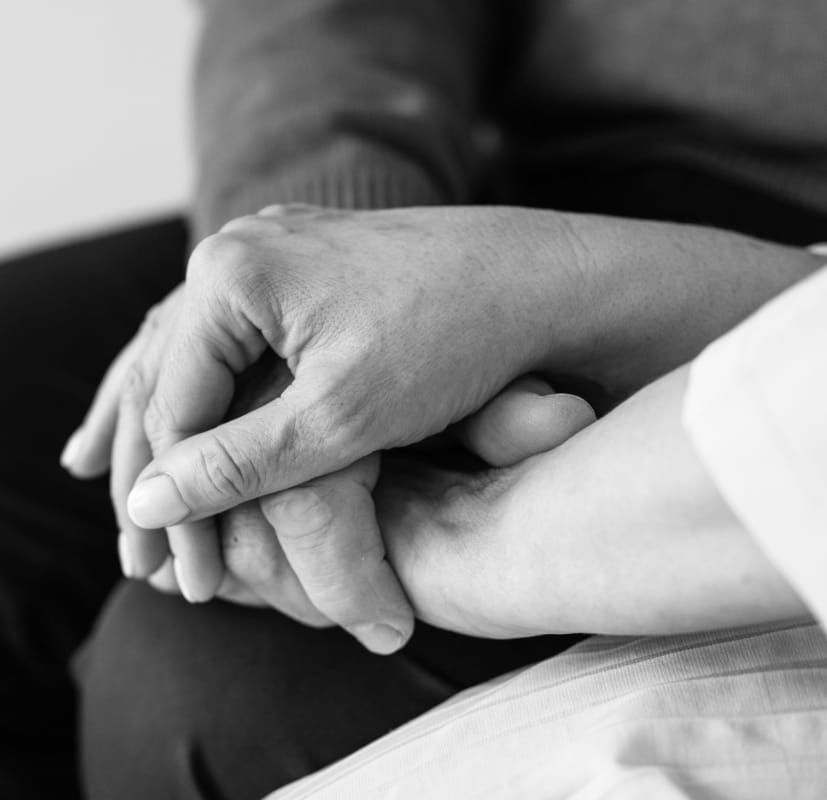There was a time I was not coping with grief well. It’s just one of those things I didn’t know how to deal with, and I was a bit lost on what I needed to do next.
I wish that I could tell you there’s a magic trick for getting over your grief quickly and moving on with your life, but there isn’t. And I also wish I could tell you that it will be easy, but it won’t be.
The deep pain of loss can be challenging to cope with. The death of someone dear – a family member, a friend, a beloved pet is a life-altering event that can leave the griever feeling alone, confused and lost.
I am sharing some of our own experiences and lessons I’ve learned about overcoming grief.
Lesson 1: Try to allow yourself and your family to cry.
The first lesson I learned about grief was to try to allow myself and my family to cry. We all need that.
Crying is a healthy and the most typical way to process grief. It can help you feel better because when you cry, it helps release the pain and tension inside you. It can also help you to begin the healing process.
If you don’t cry, then all of those feelings are just trapped inside of you, and they can cause more pain later on.
Lesson 2: You don’t need to be strong all the time.
I know that you think being solid means holding it together and not letting anyone see how much you’re hurting.
I also used to think we should stay strong while grieving. I felt that if I could just get through it and keep going, my life would go back to normal, and I would be able to move forward. But it’s not true—you can’t just keep going. You have to let yourself grieve, and then you have to let yourself heal. And sometimes, that means doing things you might not want to do or feeling the way you might not want to think for you to heal.
It’s okay to let your emotions wash over you, and it’s okay to cry when you feel like it. It does not lessen you as a person or make others think poorly of you.

Lesson 3: Ask for help if you need it, and tell people if you feel you can’t cope.
If you struggle to cope with grief, it is essential to ask for help. Don’t be afraid to discuss your thoughts and feelings with friends and family.
If you are worried about how much energy you have left for your family and if you’ve got children, you could ask a friend or relative if they would be willing to look after the children at least once every few weeks so that you can have some time alone.
Lesson 4: Be patient with ourselves and others.
Give yourself permission to heal at whatever pace is right for you.
Grief can affect how we think and behave, and we must be patient with ourselves as we adjust. It’s also important to remember that others may not understand how grief affects us – they are also grieving, sometimes in different ways. Be patient with them as well!
Grief can make people act in ways that aren’t normal for them, which doesn’t necessarily mean they’re being mean on purpose. It just means they’re not themselves right now—they’re hurting too much to be their old selves. So instead of getting angry at them for not understanding what you’re going through, try to let go of expectations that they will understand precisely how you feel (or should feel) because they haven’t been through what you have been through.
Lesson 5: The Grieving Process – Grief isn’t linear.
When you’re grieving, you may feel like your pain is a straight arrow that goes from the day of the death to today.
But it doesn’t work that way. It comes in waves instead of one big wave at once, as movies tend to portray it!
There are days you may feel like everything is okay; the next day, it feels like total chaos. You might start to feel like life is normal again after a few months; suddenly, something happens, and everything changes again. Grief is not linear because it is what life looks like: messy and unpredictable, with ups and downs and changes happening all over the place at once.
Lesson 6: You can get through this.
It will get better. You can be angry, sad and happy at the same time. You can feel all these emotions at once, and that’s okay. It takes time to sometimes to move through the stages of grief, and there will be some times when nothing changes or gets any better. This is normal!
Conclusion
Grief changes us. It shapes us as individuals and forces us to identify our true values. As difficult as grief may be to process. We all inevitably experience grief at some point, if not several times, throughout our lives.
Grieving is a personal process that makes it difficult to find a right or wrong way. You can do whatever helps you get through this challenging time, whether it’s spending time alone or talking about your loved one a lot. It’s entirely up to you.





0 Comments